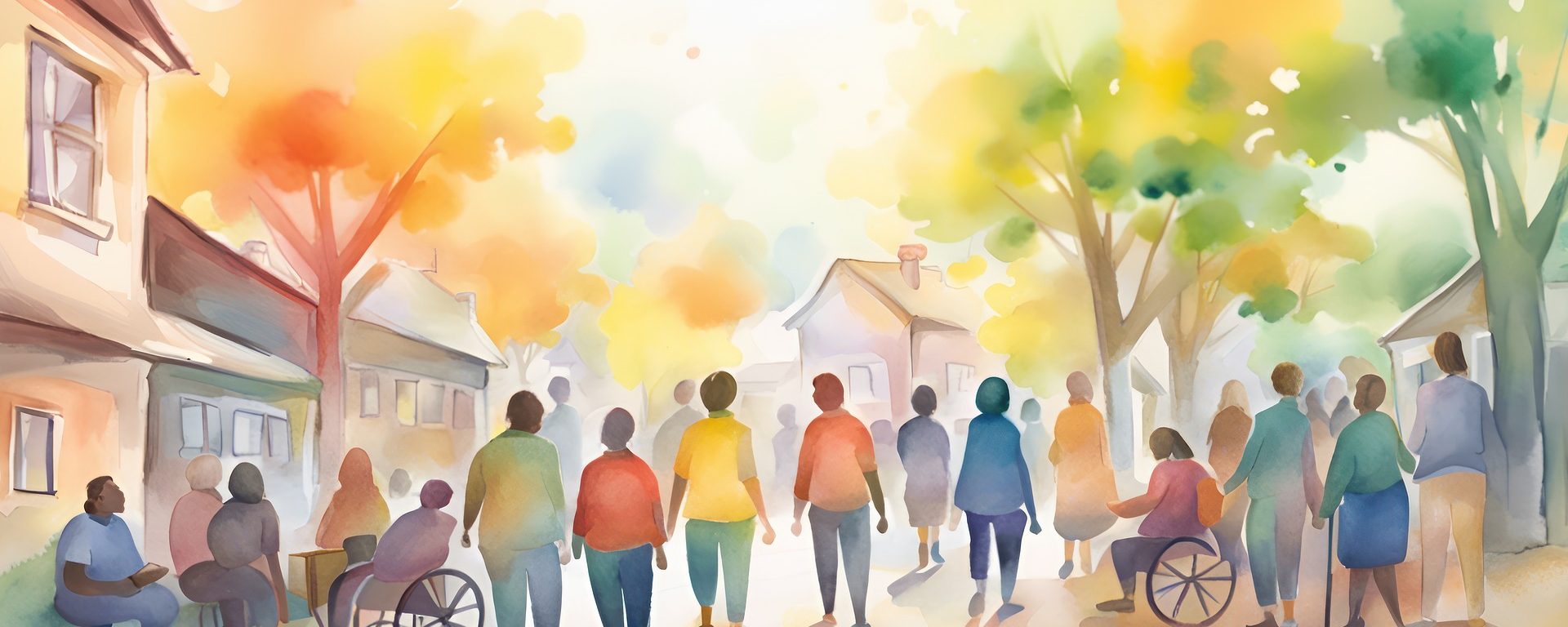The public health sector is always looking to the future. As a dynamic and ever-evolving field, careers in public health offer countless opportunities to influence the landscape of human wellness.
While many entry-level positions only require a bachelor’s degree, earning your master’s in Public Health (MPH) opens doors to advanced leadership roles, increases your earning potential, and enhances your ability to affect public health policies and strategies — enabling you to make a big-picture difference on diverse local and global communities.
So, aspiring healthcare leaders, let’s explore 3 of today’s most in-demand public health career opportunities — preparing you to make an immeasurable impact in this essential field.
1. Epidemiologist
What do epidemiologists do?

Often referred to as “disease detectives,” epidemiologists study the patterns, causes, and effects of health and disease conditions in defined populations. They play a critical role in outbreak investigations and the development of public health policies to prevent future incidents.
What is the career outlook for epidemiologists?
As it stands, the demand for epidemiologists is rapidly rising. The U.S. Bureau of Labor Statistics anticipates a 27% increase in the need for epidemiologists — trumping the average growth rate for all professions by well over 20%. Moreover, a career in epidemiology can help you secure your financial future, with the median salary for these specialists averaging over $80,000 annually.
What skills do epidemiologists need to master?
Epidemiologists need an essential set of skills to thrive in the field, including:
- Ability to analyze and interpret complex data to identify patterns and trends
- Capability to lead teams, manage projects, and influence public health policies and practices
- Capacity to work effectively with other public health professionals, government agencies, and community organizations
- Ability to evaluate evidence to make informed decisions
- Flexible written and verbal communication to effectively convey findings to diverse audiences
- Proficiency in using epidemiological tools, software, and technologies
- Resourcefulness in addressing complex health issues and outbreaks.
- Skills to plan, implement, and manage public health projects and research studies
These skills enable epidemiologists to identify disease patterns, develop public health interventions, and communicate findings to various stakeholders.
How will earning my MPH help me succeed as an epidemiologist?

Earning your MPH prepares you for these responsibilities by providing a comprehensive education in public health principles, hands-on experience through internships or fieldwork, and specialized training in research and statistics. In addition to providing professional networking opportunities, MPH programs emphasize ethics, policy, and leadership. This interdisciplinary and practical approach equips you with the knowledge and skills necessary to become an epidemiologist and make meaningful contributions to public health.
2. Community health worker
What do community health workers do?

Community health workers (CHWs) promote wellness and healthy behaviors in communities. They design and implement educational programs, advocate for health resources, and support individuals and families to improve their health outcomes. CHWs can work in diverse professional settings, from healthcare facilities and higher education institutions to private organizations and government agencies.
What is the career outlook for CHWs?
In addition to increasing your personal and professional fulfillment, working as a CHW can provide job security, with the need for these professionals projected to climb by 14% in the next decade. CHWs earn an average median salary of over $48,000 annually, though exact income varies based on the employing organization.
What skills do CHWs need to master?
CHWs need to command a diverse variety of knowledge and skills, such as:
- Ability to advocate for the health needs and rights of individuals and communities
- Capability to conduct outreach and engage with hard-to-reach or underserved populations
- Capacity to educate individuals and groups about health topics, preventive measures, and healthy behaviors
- Knowledge of local healthcare systems and services to assist community members in navigating them
- Resourcefulness in identifying and addressing health-related issues and barriers to care
- Strong interpersonal and communication abilities to engage, empathize with, and motivate community members
- Understanding and respecting cultural differences to build trust and rapport with community members
These skills help you to tackle complex health challenges, influence health policies, and contribute to creating healthier communities.
How will earning my MPH help me succeed as a CHW?

Earning an MPH will enhance your success as a CHW by increasing your understanding of public health principles, advancing your knowledge of disease prevention, and developing strategies for health promotion. Moreover, earning your MPH equips you with essential skills in data collection and analysis, health education, and program planning and evaluation — enabling you to design and implement effective community health initiatives. Beyond building practical skills, pursuing your MPH fosters the cultural competency necessary for engaging with diverse populations and addressing health disparities.
Are you ready to advance your career in public health? Take the first steps today — download your free MPH Get Started Guide and learn more about earning your degree at Goodwin!
3. Public health administrator
What do public health administrators do?

Public health administrators (or public health managers) undertake the important task of leading public health programs and organizations in settings ranging from community health centers and hospitals to international organizations and private corporations. They are responsible for budgeting, staffing, and developing policies to ensure the efficient delivery of public health services.
What is the career outlook for public health administrators?
According to the U.S. Bureau of Labor Statistics, the need for public health administrators is anticipated to increase by 28% over the coming decade. These professionals typically earn between $70,000 and $120,000, reflecting their leadership responsibilities and expertise.
What skills do public health administrators need to master?
To succeed as a public health administrator, you will need to hone an advanced set of skills, including:
- Ability to lead teams, make strategic decisions, and manage healthcare organizations effectively
- Capability to plan, implement, and oversee public health projects and initiatives
- Familiarity with health information systems and technology used in healthcare management
- Proficiency in analyzing data to inform decisions and improve health outcomes
- Resourcefulness in identifying and addressing challenges within healthcare settings
- Skills to manage budgets, financial planning, and resource allocation
- Thorough knowledge of healthcare laws and regulations
- Understanding and respecting cultural differences to address diverse health needs
These skills ensure that public health administrators can effectively manage healthcare services, improve public health outcomes, and navigate the complexities of the healthcare industry.
How will earning my MPH help me succeed as a public health administrator?

Earning an MPH prepares you for success as a public health administrator by providing a comprehensive education in public health principles, including health policy, management, and leadership skills. Furthermore, your MPH journey will equip you with the analytical skills to interpret health data and make informed decisions. Practical experience gained through internships and fieldwork helps develop problem-solving abilities and real-world knowledge of public health systems.
Additionally, MPH coursework in budgeting and financial management, coupled with an understanding of healthcare laws and ethics, ensures you are well-prepared to navigate the complexities of healthcare administration and improve health outcomes in your community.
Why choose Goodwin?
If you are ready to embark on your MPH journey, look no further than Goodwin University. At Goodwin, our master’s in Public Health program prepares ambitious and compassionate professionals with the knowledge and skills necessary to excel in this field.

– Kimberly Stein, MPH
With a curriculum combining theoretical knowledge and hands-on learning, Goodwin provides students with a well-rounded, career-ready Public Health education. As you balance your studies with practical experience through flexible internship and fieldwork opportunities, you will learn to tackle real-world challenges, lead life-changing initiatives, and make data-driven decisions — setting the stage for a thriving career in the public health sector.
The public health sector offers many career opportunities for those dedicated to improving health outcomes locally, nationally, and globally. Goodwin University’s MPH program provides the foundation and skills necessary to pursue these rewarding paths. As the field continues to grow and evolve, public health professionals will be at the forefront of creating healthier communities and a better world for all.
With 6 class start dates, flexible online programming, and the option to pursue your MPH on an accelerated timeline, we’re here to help fast-track your journey as a public health leader. Learn more about our MPH program!
Goodwin University is a nonprofit institution of higher education and is accredited by the New England Commission of Higher Education (NECHE), formerly known as the New England Association of Schools and Colleges (NEASC). Goodwin University was founded in 1999, with the goal of serving a diverse student population with career-focused degree programs that lead to strong employment outcomes.

